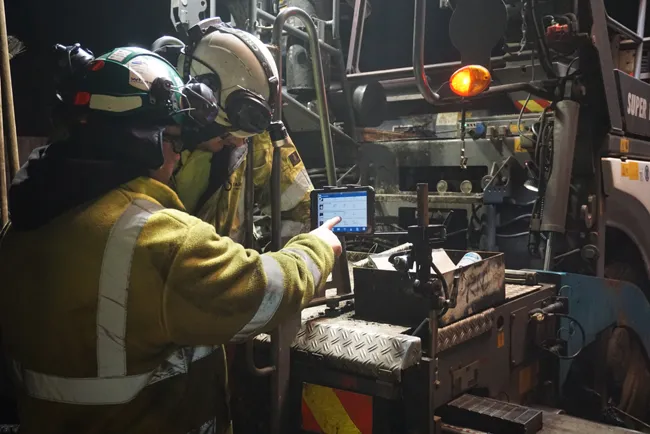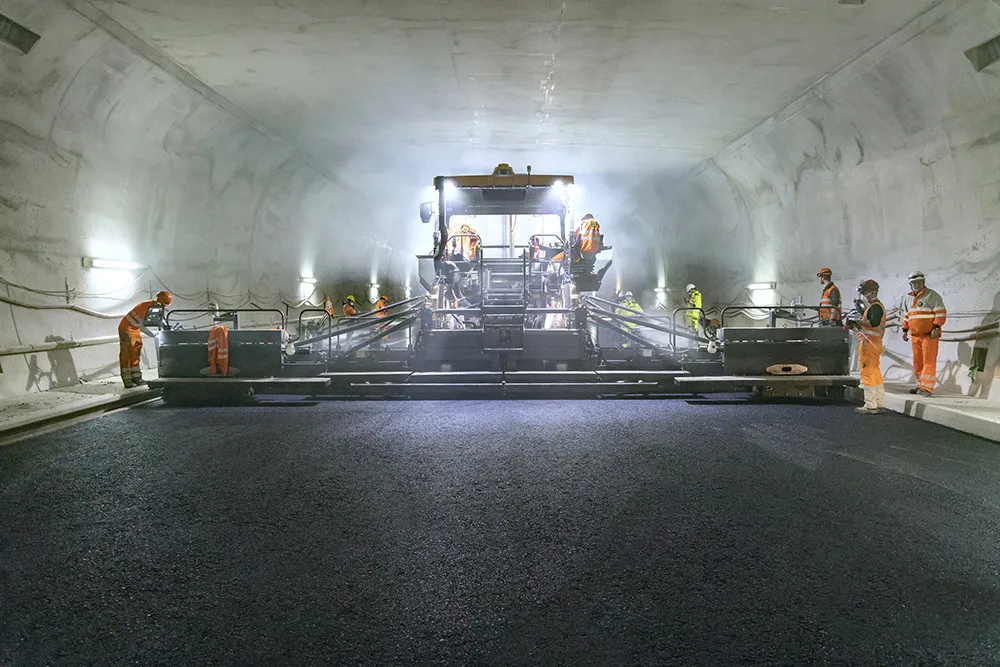
Based on the site’s parameters and project requirements, the software calculates the time needed to produce asphalt at the plant and the number of trucks required for transport. It can also calculate the density of material and the maximum volume of asphalt that can be laid/shift.
Paul Fleetham, managing director at Tarmac Contracting, said: “Rolling out this software across our contracting business allows our teams to create detailed project schedules and enhance our planning of material supply, resources and plant.
Teams on the ground can access information in real time through a mobile app, allowing them to track deliveries, monitor data relating to the quality of the pavement installation and to assess progress. The real time data also allows decisions to be made immediately across all parties, including asphalt production, to haulage and paving teams.
Tarmac has already used the new technology as part of the renovation of a busy 6.5km stretch of the M62 near Leeds for









